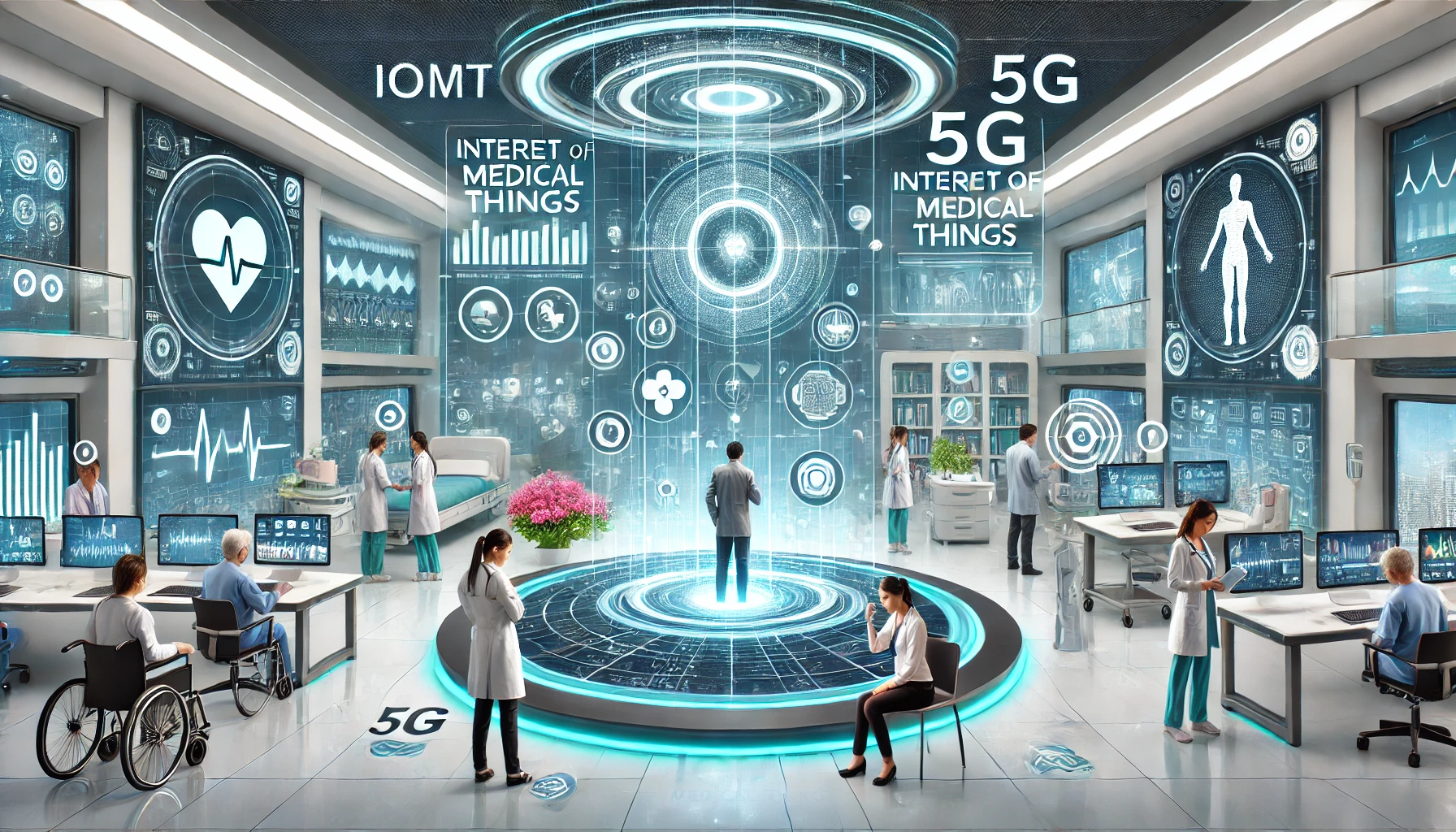IoMT's Role in the Future of Healthcare: From AI Integration to Remote Monitoring
The Internet of Medical Things (IoMT) is revolutionizing healthcare by enabling real-time patient monitoring, enhancing efficiency, and supporting technologies like AI, blockchain, and 5G for personalized care. Despite challenges in data security and system integration, IoMT promises to improve healthcare delivery and outcomes globally.

Researchers from institutions including Jazan University in Saudi Arabia, Umm Al-Qura University in Saudi Arabia, Mendel University in the Czech Republic, and Vellore Institute of Technology in India provide a comprehensive look into the transformative role of IoMT in modern healthcare systems. IoMT, which is a specialized subset of the Internet of Things (IoT) focused on healthcare, has gained significant attention due to its ability to enhance precision, efficiency, and connectivity in healthcare. It allows medical devices and applications to communicate over the internet, enabling real-time monitoring and management of patient data. This connectivity is critical in improving patient outcomes and streamlining healthcare services.
Reducing Healthcare Costs and Improving Patient Management
The authors emphasize the rapid growth and importance of IoMT in addressing rising healthcare costs and the increasing prevalence of chronic diseases, which are exacerbated by an aging global population. IoMT enables remote patient monitoring through devices like glucometers, heart rate monitors, and pressure sensors, which can send real-time data to healthcare providers. This technology is already playing a critical role in reducing unnecessary hospital visits and minimizing pressure on healthcare facilities. Hospitals, for example, can track bed occupancy and patient movement through IoMT-enabled devices like RFID tags and sonar cameras, allowing for better management of emergency room operations and patient flow.
AI and IoMT: A Powerful Combination for Smarter Healthcare
The paper explains that IoMT is composed of several layers that support the collection, transmission, and analysis of medical data. These layers include wearable devices and sensors that gather data from patients, which is then processed through cloud computing platforms and analyzed using artificial intelligence (AI) and machine learning (ML) algorithms. The authors highlight the use of AI in IoMT as crucial for automating various healthcare processes, including clinical documentation, decision-making, and personalized treatment plans. AI algorithms can analyze patient data, medical literature, and diagnostic test results, offering healthcare providers evidence-based recommendations. The integration of AI with IoMT also facilitates telemedicine, virtual assistants, and chatbots, which help reduce the need for in-person doctor visits while improving the accuracy and speed of medical diagnoses.
Blockchain and 5G: Securing Data and Enabling Remote Surgeries
IoMT’s potential extends beyond basic patient monitoring. The paper discusses how IoMT integrates with advanced technologies such as blockchain for secure data exchange and 5G networking to support telemedicine and remote surgeries. Blockchain technology is particularly important for ensuring the privacy and security of sensitive medical data, while 5G networks offer the bandwidth and speed necessary to support the simultaneous operation of multiple medical devices. The combination of these technologies helps address key challenges in modern healthcare, such as data privacy and the secure transmission of patient information.
Virtual Reality and Big Data Analytics for Enhanced Medical Care
Additionally, the authors explore the role of virtual reality (VR) in IoMT, particularly in medical diagnosis and training. VR can simulate three-dimensional environments for medical education, allowing practitioners to hone their skills in a risk-free setting. This technology has applications in treating psychological conditions, stroke rehabilitation, and even cancer care, where it helps improve patient outcomes by reducing stress and anxiety. Moreover, the paper emphasizes the importance of cloud computing and big data analytics in IoMT. The vast amounts of data generated by IoMT devices require sophisticated storage, processing, and analysis solutions, which cloud platforms and big data tools provide. These technologies enable healthcare providers to gain insights into disease trends, predict health outcomes, and manage population health more effectively.
The Challenges Ahead for IoMT in Healthcare
Despite the many advantages of IoMT, the paper also addresses the challenges that need to be overcome for its full adoption in healthcare systems. One of the primary concerns is data security, particularly given the vast amounts of personal health information transmitted across IoMT networks. Ensuring compliance with regulations such as HIPAA and GDPR is crucial for protecting patient privacy. Additionally, the paper notes that IoMT devices must be reliable, accurate, and interoperable across various healthcare platforms. The integration of IoMT systems requires significant upfront costs, which can be a barrier for healthcare organizations, particularly in developing regions. Power management is another challenge, as many IoMT devices are battery-operated and require long-lasting, energy-efficient solutions.
Looking to the future, the authors suggest that IoMT will continue to revolutionize healthcare by enabling more advanced remote monitoring capabilities and predictive analytics for identifying high-risk patients. IoMT will also drive the development of standardized protocols for data exchange, which will enhance interoperability across different healthcare systems. This will lead to more comprehensive patient care and improved decision-making by healthcare providers. Furthermore, the paper predicts that as IoMT expands, robust cybersecurity measures will be critical to protect patient data from breaches and unauthorized access.
The paper illustrates that IoMT is poised to transform healthcare by providing more accessible, efficient, and personalized care. With its integration into AI, blockchain, and 5G, IoMT is helping to create a proactive healthcare model that emphasizes prevention and early intervention. The authors are optimistic about the future of IoMT, forecasting that it will improve healthcare delivery and patient outcomes on a global scale.
- FIRST PUBLISHED IN:
- Devdiscourse










